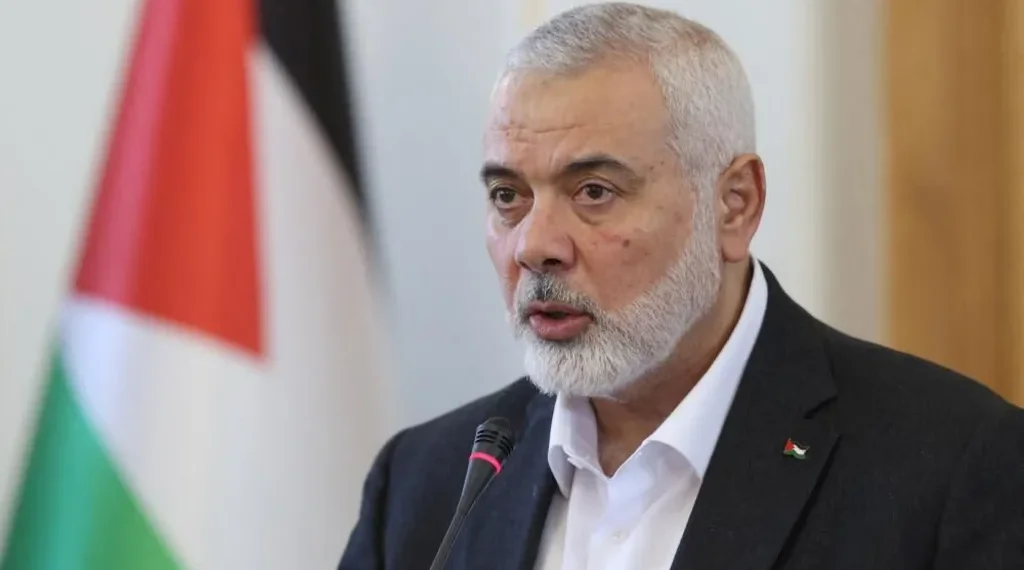Israel Confirms Killing of Hamas Leader Haniyeh in Tehran
In a significant statement, Israel’s Defense Minister Israel Katz confirmed for the first time that the Israeli military killed Hamas’s political leader Ismail Haniyeh in Tehran in July. Katz’s comments were made during a speech in which he pledged to target the leadership of the Iran-backed Houthi movement in Yemen, which has been launching missile and drone attacks against Israel.
Haniyeh, 62, was reportedly killed in a building in Tehran, and his death has been widely attributed to Israel. Known for his pivotal role in Hamas, Haniyeh had been a key figure in ceasefire negotiations in Gaza. His assassination came after Israel’s successful operations against other militant leaders, including Yahya Sinwar and Hassan Nasrallah, leaders of Hamas and Hezbollah, respectively. Katz vowed that Israel would continue to strike at hostile leaderships, including the Houthis in Yemen.
The Aftermath of Haniyeh’s Death
Following Haniyeh’s assassination, Hamas appointed Yahya Sinwar, the group’s leader in Gaza and a mastermind behind the October 7 attacks, as its new overall leader. However, Sinwar was killed by Israeli forces in a chance encounter in Gaza in October, leaving Hamas to search for a new leader. In the same period, Hezbollah’s leader, Hassan Nasrallah, was killed in Beirut as Israel escalated its military actions against the Lebanese group.
The Houthis, who control northern Yemen, have been attacking Israeli and international ships in the Red Sea since Israel intensified its assault on Hamas last October. The Houthis have made it clear that their attacks will continue until the war in Gaza ends. On Saturday, Israel’s military unsuccessfully attempted to intercept a missile fired from Yemen, which struck a park in Tel Aviv. A Houthi spokesperson claimed the missile hit a military target using a hypersonic ballistic missile.
Humanitarian Crisis in Gaza
As the conflict continues, the humanitarian situation in Gaza has worsened. The death toll in Gaza has surpassed 45,000 people, according to Hamas-run health ministry figures. In the last 24 hours, 58 individuals were reported killed in Israeli airstrikes. These strikes also included attacks on areas previously designated as “safe zones” by the Israeli military. Humanitarian organizations such as Oxfam and Amnesty International have raised alarms over the conditions in Gaza, accusing Israel of deliberately hindering aid deliveries and committing genocide.
Oxfam reported that only 12 trucks of food and water had been able to reach northern Gaza in over two months. Humanitarian groups have criticized the delays and systematic obstructions imposed by the Israeli military. In response, Israel denied these claims, asserting that it had made extensive humanitarian efforts to supply food, water, and medical supplies to various areas in northern Gaza.
In a heated exchange, Israel’s Foreign Ministry dismissed accusations from Amnesty International and Human Rights Watch, calling their reports “false” and “based on lies.” These rights groups have accused Israel of depriving Palestinians in Gaza of adequate access to essential resources, further fueling the ongoing international debate over the conflict.
The Path Ahead
While there have been signs of progress towards a ceasefire in Gaza, Israeli Prime Minister Benjamin Netanyahu refrained from providing a timeline for when such a deal could be reached. A senior Palestinian official claimed that talks between Hamas and Israel were 90% complete, but several key issues remained unresolved.
The situation remains volatile, with both military actions and diplomatic negotiations continuing to shape the course of the conflict. The international community closely watches as Israel takes aim at various militant groups, with the future of Gaza’s civilian population hanging in the balance.
This article was rewritten by JournosNews.com based on verified reporting from trusted sources. The content has been independently reviewed, fact-checked, and edited for accuracy, neutrality, tone, and global readability in accordance with Google News and AdSense standards.
All opinions, quotes, or statements from contributors, experts, or sourced organizations do not necessarily reflect the views of JournosNews.com. JournosNews.com maintains full editorial independence from any external funders, sponsors, or organizations.
Stay informed with JournosNews.com — your trusted source for verified global reporting and in-depth analysis. Follow us on Google News, BlueSky, and X for real-time updates.













